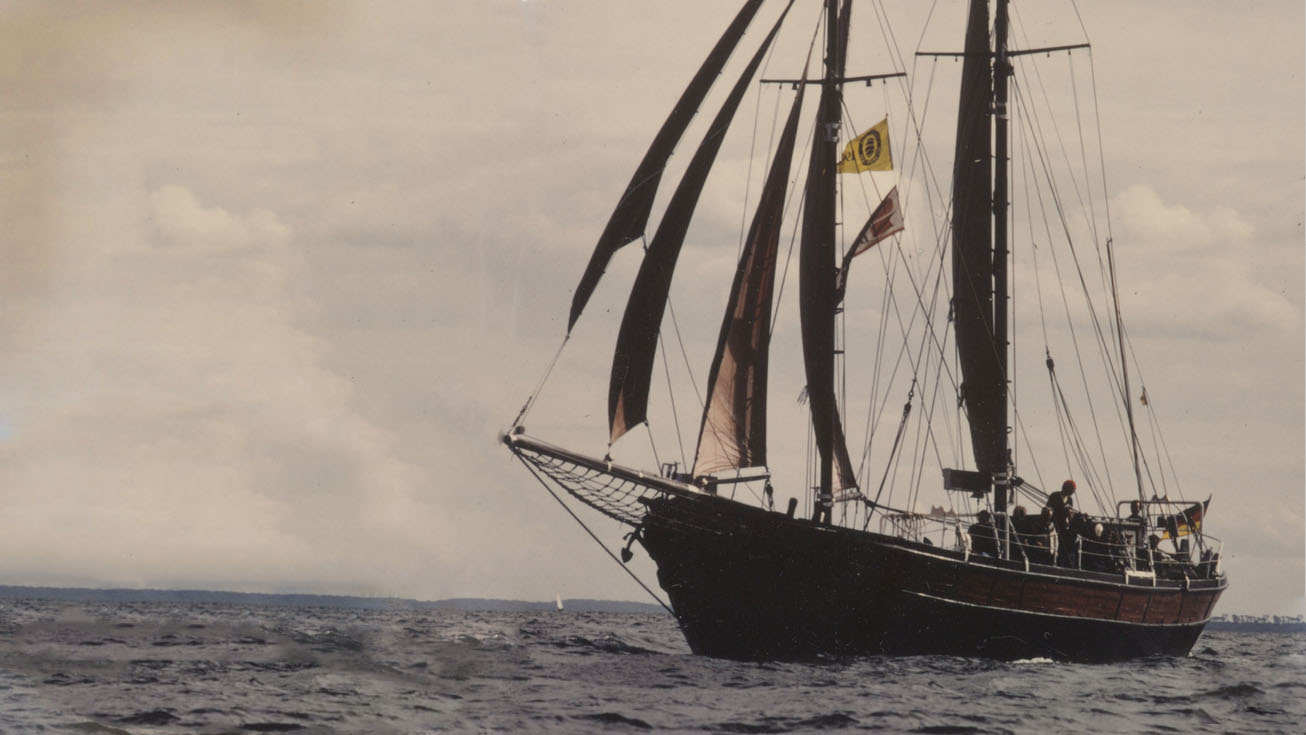
© Wilhelm Grieme
Back Then: On the High Seas with the University
Sailing trips with the Godeke Michels and other boats were possible in the 1970s and 1980s
“Taking over the helm”, “to be in stormy waters”, or “(not) going off course” – Examples of metaphors that describe the turbulent history of the University of Bremen? Not at all! The university literally sailed, especially in the 1970s and 1980s.
What was the meaning of these activities for the university – that is one of the many questions that the new project on oral history in the university archive (BUA) has been addressing since the start of 2019. The superordinate aim is to expand on the available and comprehensive written documentation from the university’s history by means of interviews with witnesses. It is also about taking a look at daily life, as well as informal happenings and events that remain undocumented to date.
Trips from Copenhagen to Edinburgh
The sailing trips are a good example for the latter. A university lecturer appointed in Bremen, who previously worked in Berlin and was an experienced sailor, got the ball rolling. Cruises on various boats had been taking place since 1975; the Godeke Michels, which was purchased in 1981/82 and used until 1985, was one of the more prominent boats. In order to enable her purchase, several lecturers “chipped in”. In 1980, a 40-person group made up of lecturers and students established the Uni Bremen Sailing Society (SUB), which was planned as being alternative – as it was not only academic in form. The society is still around today. The trips ended in Copenhagen or Edinburgh.
“It was a community” – There was hardly anyone who did not put it like that during the interviews. There were in fact very differing status groups on board: Professors from various disciplines, service providers, as well as students (for some of the trips).
The society benefited from the fact that the university was comparatively small at the time. Grounds for such trips varied from being of a solely private nature to cruises for the faculty (Faculty 11 for Labor and Education Sciences at the time), and even trips with classes on board, which were then mainly with students from technical fields and in connection to vocational pedagogy or sport.
Straight away, several of the interviewees put this activity in the context of one-third parity, a participation mode which was directed against the traditional professor-led university. Said mode only held legal value until 1976 but lived on in the heads of some: Status boundaries were partially able to be broken down with cruises. A further motivation was to put something positive – in a pragmatic way – against the ideological disputes at the university, which were found to be extremely theoretical and abstract, and against the beginnings of hostility in the region due to the perception of it being a “commie training ground”. However, this was to be done without appearing to be apolitical.
“The Uni Was a Foreign Object”
With regard to the mentioned dimension outside of the university, it must be said that local societal integration hadn’t been achieved yet. There was the perception that “the uni was a foreign object.” Sailing emphasized many positive accents, for example
the explicitly stated possibility for external persons to become part of the sailing society crew, which is still valid today;
the participation in the Sails regatta in 1986;
the contact to the education authority concerning approval for the cruises.
When Godeke Michels was moored in Vegesack port, enthusiastic passersby stated: “Oh look, that’s our university!”
Inclusion of socially disadvantaged groups is important. This principle – which was in accordance with the university’s ideals during the founding phase – can be clearly seen in the constitution of the sailing society in 1980 (Section 2). A sailing tour with the members of a city initiative for children and youths, disabled youths, or those with a criminal record was deemed a theoretically founded opportunity to promote the development of character. During this time, the approach of pedagogic-therapeutic sailing, which was significantly shaped by the Bremen psychologist Michael Stadler, was established.